
![]()
Every Sunday, we bring together a collection of easy-reading articles from analytical to how-to to photo features in no particular order that did not make our regular daily coverage. Enjoy!
Bright, Saturated Color Cloaks Houseplants and Flowers in Kaleidoscopic Photographs – Colossal
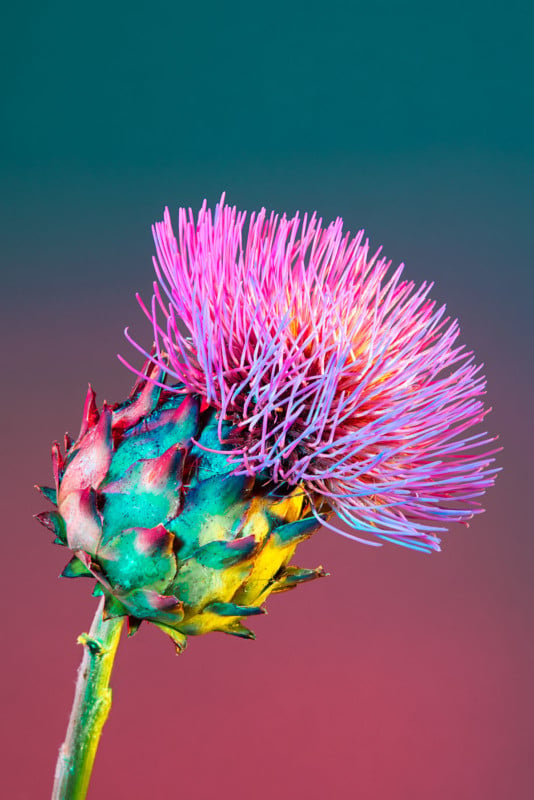
I turned to photography at a young age as a way to manipulate the world in front of me and create endless possibilities. – Lindsey Rickert
Lindsey Rickert is a photographer from Portland, OR, who likes to work with bright colors from products to portraits.
“The best thing about my job is getting to meet a wide variety of people,” says Rickert. So obviously, the pandemic got her feeling lost and disconnected at the sudden inability to photograph or be near people. This gave birth to a project photographing plants, flowers, and vegetables all colored in-camera with gelled flashes. Prints of the series are available in Rickert’s shop.
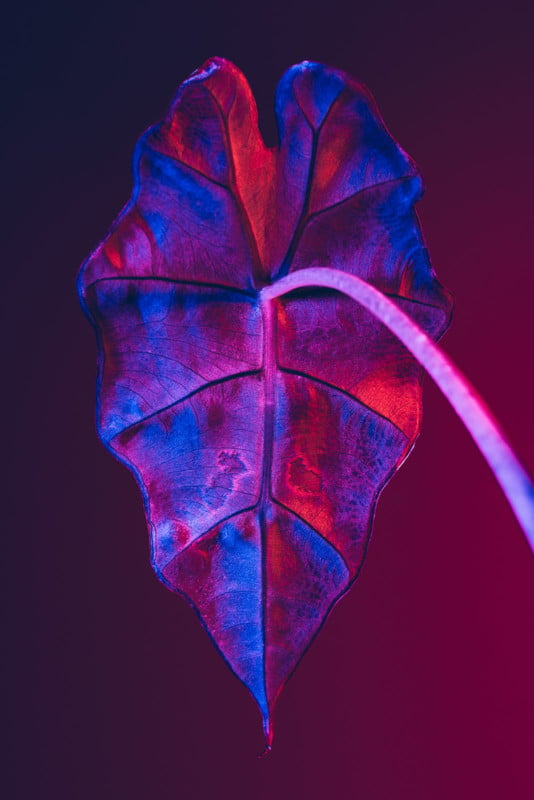
5-Minute Sunday Interview
Phil Mistry: How did you come up with the idea for Otherworldly Botanicals?
Lindsey Rickert: It was a series born at the start of the pandemic. I found myself feeling lost and disconnected at the sudden inability to photograph or be near people. Searching for a creative outlet to help me cope, I looked out my window one afternoon to see my Four’ O Clock plant had started to bloom.
These beautiful flowers bloom in the late afternoon and lose all their petals by the following morning. I quickly clipped a few of them and rushed into the studio to play, approaching them as I would a portrait of a person. As the weeks carried on, more subjects began presenting themselves as they came out of their winter dormancy, and the series was born.
Each image is created in-camera using the power of studio lights covered in gel paper to get the rich and saturated colors you see.
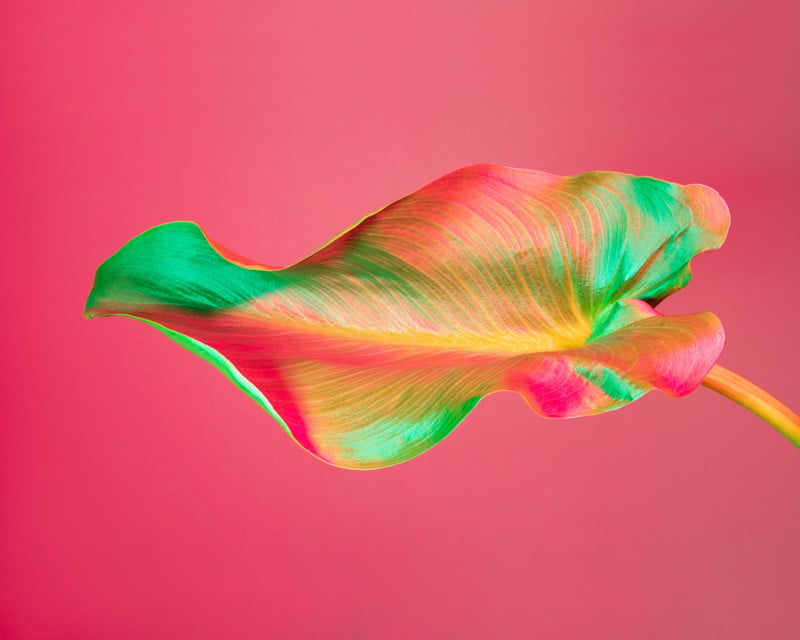
PM: What is your attraction for ultra-bright colors?
LR: I’ve always loved using color in photography as a way to tell a story and direct the eye throughout the image. Using ultra-bright colors to photograph these plants was a way to transplant the viewer into a vivid and magical otherworld.
PM: Which cameras, lenses, and lights did you use?
LR: I shoot with a Nikon D810, 24-70mm, and use AlienBees strobes with colored gel paper on them to create these images.
Photojournalist Ron Haviv on the Changing Landscape of Conflict Photography — 1854
Ron Haviv’s above photo went viral before anybody even knew what it meant to go viral. At age 23, he had just traveled to Panama on a whim in 1989 to photograph the election.
General Manuel Noriega annulled the election before counting finished after it had been shown the Noriega-backed candidate was going to lose by a 3 to 1 margin. The winners started street protests, and in the above photo, we see Guillermo Ford, who would eventually be vice president, being beaten by a paramilitary soldier.
Haviv is an Emmy nominated, award-winning photojournalist and co-founder of the VII Photo Agency, who has covered more than 25 conflicts and worked in over 100 countries.
Most Artists Are Not Making Money off NFTs and Here are Some Graphs to Prove it – Medium
“NonFungible.com, until recently, showed an ‘average sale’ price, and it was shockingly high!” says Kimberly Parker in the above article. “Several thousand dollars! But then I wondered, with my tiny artist brain that is bad at math: what exactly is an average?
“It turns out: you get an average by adding up all the numbers in a list and then dividing that by the number of uhh numbers. But an average can be skewed significantly by sales that are extremely low or extremely high, so it’s considered an unreliable metric.
“That’s why there’s another useful calculation that often gets done: the median. To get a median, you have to list all the numbers in your list in order (highest to lowest, or lowest to highest), then you find the exact middle point of that list. This gives you a much better idea of what it’s like to be ‘in the middle of the pack’.”
The Girl in the Famous Kent State Photo and the Lifelong Burden of Being a National Symbol – Anchorage Daily News
I remember this day (still in high school). Don’t know if you’ve seen the WaPo piece by Patricia McCormick @McCormickWrites about Mary Ann Vecchio, the girl in the photo. This brought back a lot of sad memories from long ago.https://t.co/IQtVIaENBb
— Dr. Sam Ervin’s Eyebrows (@rsa4046) May 4, 2021
The photo of Mary Ann Vecchio kneeling over the body of Kent State University student Jeffrey Miller is one of the most important images of the 20th century. Taken by student photographer John Filo, it captures Mary Ann’s raw grief and disbelief at realizing that the nation’s soldiers had just fired at its own children.
“That picture hijacked my life,” Mary Ann, now 65, tells The Washington Post. “And 50 years later, I still haven’t really moved on.”
Checkout
The Kent State Massacre Photo and the Case of the Missing Pole
Kate Middleton is Unofficial Royal Photographer – Hello
Last month in memory of Prince Philip, Buckingham Palace released a heartwarming image (above) of the Queen and her husband with seven of their great-grandchildren at Balmoral Castle. The Duchess of Cambridge, Kate Middleton, married to Prince William, took the beautiful family shot, which showed the royals enjoying a summer break in Scotland.
Guide to Color Photography: History + 10 Tips – ShotKit

- Understand Primary, Secondary, and Tertiary Colors
- Understand the Color Wheel
- The Human Brain Is Easily Fooled
7 more tips and the history of color at the link above.
18 Incredible Street Photographers Pick the One Shot That Sums up Their City — TimeOut
Cities can be chaotic and loud but, maybe after the quiet and solitude of the lockdown, what all of us, especially photographers, are yearning for.
TimeOut asked street photographers from smartphone snappers to pros to pick a single shot that sums up street life in their city. These are the photos they chose from the cities below.
Cape Town, South Africa
Delhi, India
New Orleans, USA
London, England
Copenhagen, Denmark
Rio de Janeiro, Brazil
New York, USA
Madrid, Spain
Naples, Italy
Salvador de Bahía, Brazil
Johannesburg, South Africa
Los Angeles, USA
Seoul, South Korea
Chicago, USA
Buenos Aires, Argentina
Hong Kong
Prague, Czechia
Miami, USA
Why Photography Blogging Is Overrated and Better Alternatives for Photographers – SLR Lounge
Christopher Lin, one of the two founders of SLR Lounge, along with Pye Jirsa, feels that photography blogging might be overrated and what you could do instead.
The biggest issue many photographers face when photography blogging is the SEO concept of Keyword Cannibalization, where multiple pages rank for the same keyword phrases.
Check out more challenges and the alternatives at the link above and let us know your solutions in the comments below.
Why Jamel Shabazz Is New York’s Most Vital Street Photographer — Aperture
Since the early 1980s, Shabazz has captured the energy of street life and hip-hop culture in New York, making memorable images of joy, style, and community.
Checkout
A Classic Photo Book Transformed Into an Adult Coloring Book
10 Years Later, The Rescued Snapshots Damaged in Japan’s Tsunami – NPR
20,000 people were killed when a tsunami struck the coast of Japan on March 11, 2011. It caused explosions at the Fukushima Daiichi nuclear plant and devastated the region.
Photographer Munemasa Takahashi realized that family photos and memories must have been lost in this tragedy. His Lost & Found Project grew out of Memory Salvage to gather and preserve family photos scattered in the debris and ultimately return them to their owners.
“When I saw lots of people who looked for their own photos from the piles of found photos, I understood that we need memories to live,” Takahashi told NPR.
Memory Salvage has digitized more than 750,000 images, and more than 460,000 have been returned to their owners. Many photos were damaged beyond repair, and those became part of the Lost & Found project.
Why is This the ‘Most Instagrammable’ Bird? – BBC
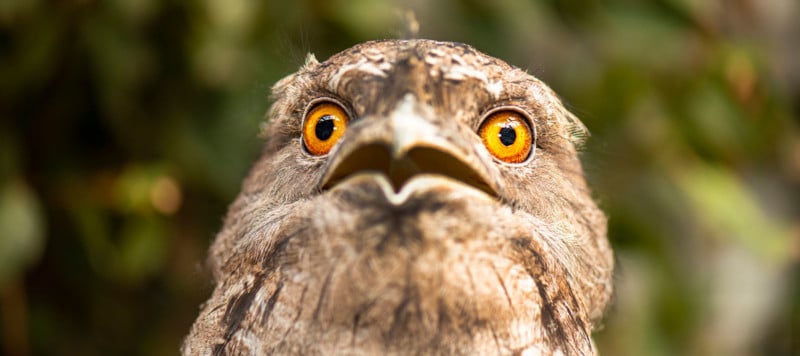
The bird is the frogmouth, which actually was once designated the world’s most unfortunate-looking bird. What has changed? Find out at the link above.
Take A Look Inside A Charming Dystopian Funhouse — Alpha Universe
Photos Showing a Different Side to Skinhead Culture Today — Huck
London-based photographer & frustrated musician Owen Harvey discusses his project spotlighting young anti-fascist skinheads, who counter the dominant narrative around a widely misunderstood subculture.
8 Luxury Travel Accounts to Follow for Inspiration — Gotham
If your shutterbug sensibilities are nagging you to get out of your cooped-up existence, here are some travel accounts to look at to take virtual or real luxury getaways and adventures.
Famous Photographer (Video): Abbas Attar, 1944-2018, Iranian/French
Abbas by Abbas (42 minutes)
Six decades of Photojournalism by the Iranian-born Magnum Photographer
Filming for Abbas by Abbas (2020) by director Kamy Pakdel, art director for some of Abbas’ books, was completed in 10 days, just six days before his death. In the film, Abbas Attar – better known by his mononym Abbas is asked where he was standing to get a particular shot, and he replies, “Let the photos live their lives and keep their mystery.”
Abbas died in Paris in 2018, aged 74.
From the PetaPixel obituary to Abbas:
Throughout his career, Abbas focused on telling in-depth stories with his photos rather than capturing single “decisive moments.” According to Magnum, Abbas believed these to be two distinct approaches to photography.
“[O]ne is writing with light, and the other is drawing with light,” the photographer once said. “The school of Henri Cartier-Bresson, they draw with light, they sketch with light. The single picture is paramount for them.
“For me, that was never the point. My pictures are always part of a series, an essay. Each picture should be good enough to stand on its own, but its value is a part of something larger.”
Photo of the Week
From The Washington Post’s 12 of the Week’s Best Photos
Why I Like This Photo — Henry Horenstein
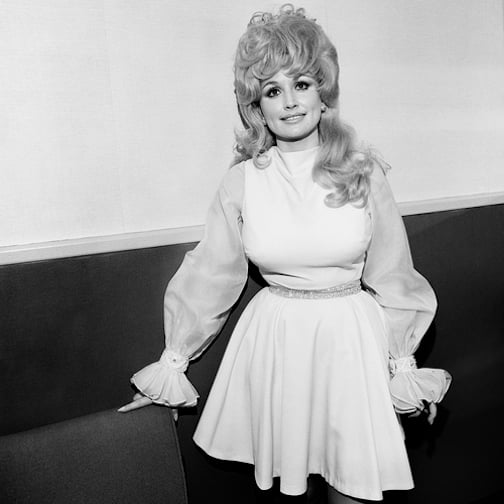
I photographed Dolly Parton in 1972 when she was a member of the Porter Wogonner Band, a popular country music act. I got to spend one hour with her backstage, along with the founders of Rounder Records. Amazing.
She gave me the best artistic advice ever. I asked why she presented herself the way she did on stage, and she said, “Folks don’t come out to see me looking like them.” Good thought for artists of all types.
I like the image because I love Dolly. And it’s been a popular image for me.
It was shot with a rare Rolleiflex 4.0 FW TLR Camera (wide angle) with a fixed wide-angle lens. Bare bulb flash. Simple. Very straightforward shot. What you see is what you get. As with all my work.
Henry Horenstein has been a professional photographer, filmmaker, teacher, and author since the 1970s. He earned his BFA and MFA at Rhode Island School of Design (RISD), where he studied with Harry Callahan and Aaron Siskind. He has published over 30 books, including Black & White Photography, Digital Photography, and Beyond Basic Photography, used by hundreds of thousands of college, university, high-school, and art school students as their introduction to photography.
Quote of the Week (or a previous week): Scott Bourne

Where light and shadow fall on your subject – that is the essence of expression and art through photography. — Scott Bourne, Olympus Visionary – Birder/Photographer
To see an archive of past issues of Great Reads in Photography, click here.
We welcome comments as well as suggestions. As we cannot possibly cover each and every source, if you see something interesting in your reading or local newspaper anywhere in the world, kindly forward the link to us here. ALL messages will be personally acknowledged.
About the author: Phil Mistry is a photographer and teacher based in Atlanta, GA. He started one of the first digital camera classes in New York City at The International Center of Photography in the 90s. He was the director and teacher for Sony/Popular Photography magazine’s Digital Days Workshops. You can reach him via email here.
Image credits: All photographs as credited and used with permission from the photographers or agencies.

